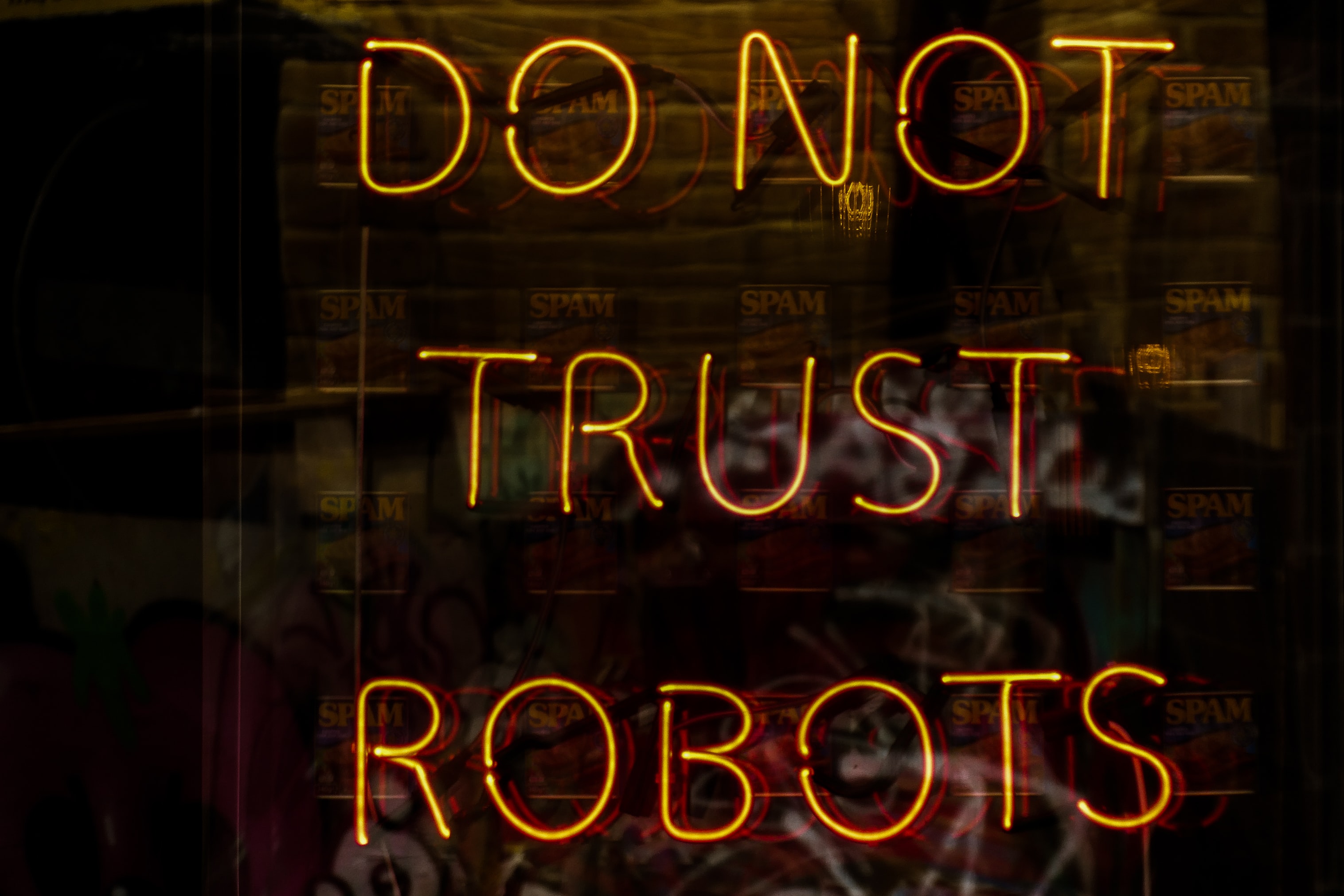Forget the Maybot: Meet the Trussbot swarm
Panicked bluster and inaccurate generalities. We read the bizarre AI-generated rip-offs of Liz Truss’s new book - Ten Years to Save the West - so you don’t have to.
It's brief, ill-considered and grimly unavoidable - much like her premiership; the only saving grace of Liz Truss’s new book 'Ten Years to Save the West' is in all the headlines, from the Daily Mail’s breathless reporting of Truss’s grand geopolitical tussles with Ocado deliveries and fleas, to the more serious media’s mockery of the same.
But, unlike her premiership, Truss’s book did inspire some desire to imitate her - if “inspiration” and “desire” are terms you would apply to a cluster of disembodied bots.
In 2024, the year when AI has ruined publishing (I have a book shortly coming out on that, by the way), you needn’t plod through the 320 pages of Truss’s poorly-received book. Instead, you can read the litany of AI-generated summaries designed to capitalise on the media’s interest in the book and the wider public’s less than benevolent interest in Truss herself. Thanks to the joys of Amazon Direct Publishing, generative AI tools like ChatGPT, and the gig economy, it’s possible to learn all about the UK’s shortest-tenured prime minister without giving Truss the chance to earn back more than that £1,500 advance.
The good news is - you don’t have to. I downloaded six Kindle versions of books about Truss that were either released upon her ignominious fall as prime minister, or around the release of her latest book. (There are others available, but they require a) paying actual money for them and b) relying on physical deliveries.)
The ripoffs that pop up when you search Truss’s name on Amazon are, for the most part, mercifully short. For instance, ‘Achievements and Biography of Liz Truss: From her family life to her work in government’ by “Andrew Kennard” promises “everything you need to know” in a breezy 21 pages. Its title is almost as long as the text between the covers.
Astonishingly, the book is not always factual: right from the off we’re already in the realm of make believe, as it claims that Truss was, not is, the MP for South West Norfolk. It does have its lucid moments, brilliantly capturing the kind of last-minute GCSE essay panic rhetoric Truss often deploys herself. At one point, a third of the way through, Kennard asks: “What does the ‘Ascension and Fall’ of Liz Truss mean?” He then goes on to define the words “ascend” and “fall”, concluding: “Put together it means to go up high before coming down low again. And that’s exactly what happened to Liz Truss.”
Kennard’s book appears to be a combination of Truss’s Wikipedia page augmented with some panicked bluster and generalities about her personal life. Her favourite books are Agatha Christie’s ‘Poirot’, and Dorothy L. Sayers’ ‘Lord Peter Wimsey’, apparently. And, according to the book, “she likes to cook both English food such as puddings or sausage and mash, as well as foreign dishes like traditional French cuisine” – though her widespread dislike of all things Europe has been noted.
Then, the book breaks entirely with fact. Apparently Truss is betrothed to Dominic Nuttall – which will be news to her husband since 2000, Hugh O’Leary. The assertion she supports Tottenham Hotspur is borderline defamatory, given she has firmly declared her support of Norwich City, in large part because it’s the closest team to her constituency. And most impressively, the book has her born on two separate dates: 26th July 1975, and 26th July 1976.
‘Biography of Liz Truss (Mary Elizabeth Truss): The Untold Story Of The British Politician’ by “Jamie Whitehead” looks more promising. An AI-generated representation of a younger, waxier version of Truss looks glassy-eyed out from the front cover of this AI-generated opus and at 73 pages, it’s a good deal more detailed than Kennard’s.
We again start at the beginning, with Truss’s birth (this time on 26th July 1975), and adopt a much more formal approach - as if Truss is being tried in court - with her full name (Mary Elizabeth Truss, in case you missed it in the title of the book) used throughout.
“Its shabbiness is endearing, as is what it chooses to focus on. One paragraph starts: “Truss became passionate about growing her following on Twitter and Instagram.”
Whitehead – or more accurately, whichever generative AI tool he likely used to compile the book – ought to be praised because we get a pretty accurate (read: naming her husband correctly) precis of her life and career. However, the AI-generated text is pretty rote. We learn eight times when she was born. We learn her full name countless times, and that she’s “commonly known as Liz Truss”. And we get the telltale sign that Whitehead didn’t write the text, but an AI did – likely ChatGPT – on p39 when the ‘author’ flags: “It’s important to note that the political landscape and government positions can change, and I recommend checking the latest sources for the most current information.”
‘Liz Truss Biography : Story Life Of A Prime Minister’ by Lyla J. Downs gives the big sell on its Amazon product page. “Among British politicians, Liz Truss is unique in that she has a thorough awareness of both the US and the changing nature of the conservative movement there,” Downs claims.
Boldly, Downs’s book begins with a “Book Review”. Sadly, rather than giving itself five stars, it is instead a brief summary of Truss’s titanic status as a leader on the world stage. Whether it’s true is questionable: “she eclipsed her successor in stature”, says Downs, which could be read as a bald-faced lie, or a very cruel joke about Rishi Sunak’s height.
Oh: the birth date count within Downs’s book is two, by the way, for those counting. (And both are correct.)
‘Liz truss: the resignation of the Prime Minister of the United Kingdom, who will succeed her role?’ by John B Hawkins is better-suited to a Daily Express SEO team’s output, but at least the pacey six-chapter book actually deploys good narrative techniques. Rather than starting with Truss’s birth in 1975 or 1976 at the John Radcliffe Hospital in Oxford, Hawkins chooses to start with the most important thing: her resignation as prime minister.
Or rather: it starts with the BBC’s story on it from 20th October 2022, which is lifted word-for-word and placed into this book. Unfortunately, that continues: chapter two, titled “reasons for Liz truss resignation”, is simply a CNN story copied and pasted into Amazon. The writing is good, but that’s because… it’s not actually Hawkins, or ChatGPT’s. It’s other people’s, with Hawkins hastily slapping his own copyright notice on top.
Hawkins is almost going about such a biography in the right way: many political books are little more than what’s called in the industry “cuts jobs”, where an author pieces together screeds of past contemporaneous reporting, rewriting it and putting it together into a cohesive narrative. It’s just that he missed a few steps along the way.
Edward Trux’s ‘Liz Truss Dairy’ [sic] looks promising, not only because of the honking typo on the front cover but because it amps up its contents. “This book vividly recounts the good and bad experiences Liz Truss had as a left-wing Tory. It includes: 1. Truss's early life; 2. His pre-political life; and 3. His political career. 4. Truss' opinion on political subjects 5. Truss-related scandals 6. How Truss became the Prime Minister, as well as a few other facts.”
And it is a page turner – just not in the way you’d expect. While the formatting is better than most other books – there are bullet points! Bold chapter headings! and actual page breaks! – it’s just the same stuff across its scant 14 pages, but disappointingly does not include Truss’s date of birth even once. A hint as to why this may be the case comes with an editorial disclaimer, following four-and-a-half pages dedicated to her resignation speech. “This article’s content was compiled from online resources,” Trux writes. “Edward or its [sic] editorial staff cannot independently verify all information.”
To Russell Wilson’s ‘Liz Truss’, then, which leaps off the Amazon listings page with its psychedelic cover and its esoteric claims on its copyright page. “You alone are accountable for the decisions, actions, and outcomes you produce,” Wilson warns. “Before undertaking any of the methods suggested in this book, please get the advice of a trained professional.”
Wilson’s tome has character in the way others I read don’t. It’s clearly cribbed from Wikipedia, with square bracketed footnotes, and parenthetical asides like “(Verification failed)”. But its shabbiness is endearing, as is what it chooses to focus on. One paragraph starts: “Truss became passionate about growing her following on Twitter and Instagram.”
Given the extracts I’ve read of her actual book so far, it feels like this book, more than any other, manages to capture the sense of the woman it chooses to profile. Although the woman herself would likely not like the concluding sentence, which mentions the infamous lettuce that outlasted her premiership.
Still, after reading the six schlocky versions of Truss's life in one afternoon, I'm not hugely keen on tackling the real thing. Given the reviews, it doesn't look like I'm missing much.
The Lead is now on Substack.
Become a Member, and get our most groundbreaking content first. Become a Founder, and join the newsroom’s internal conversation - meet the writers, the editors and more.





